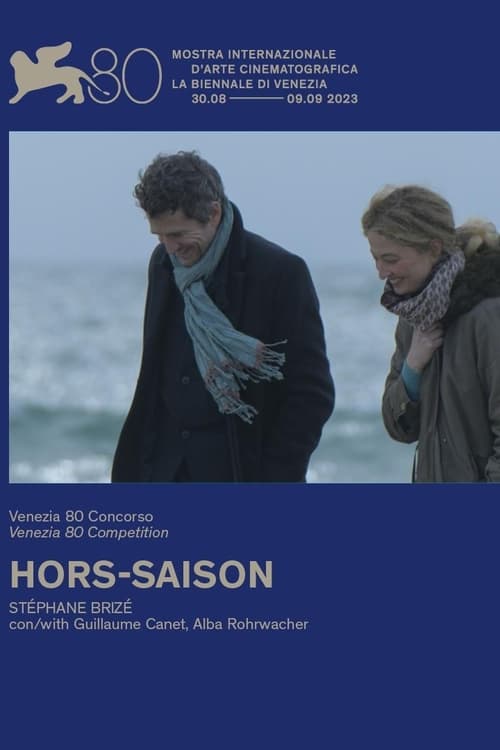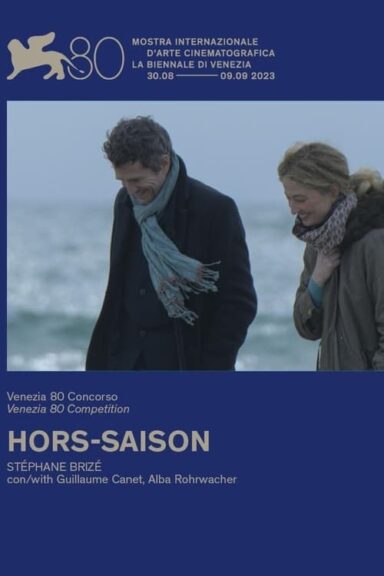
A film by Stéphane Brizé
With: Guillaume Canet, Alba Rohrwacher, Sharif Andoura, Emmy Boissard Paumelle
Mathieu lives in Paris. Alice lives in a small seaside town in western France. He’s in his fifties and a well-known actor. She’s over forty and a piano teacher. They fell in love some fifteen years ago. Then they separated. Since then, time has passed, each has gone his own way and the wounds have gradually healed. When Mathieu comes to dilute his melancholy in the whirlpool baths of a thalasso, he meets Alice again by chance.
Our Review: *
The director from Rennes takes risks and tries something out, somewhere between Sautet, Kaurismaki and even Hong San Soo … The form itself abandons the usual TV movie format of his more Loachian films, to venture into a more minimalist, more evocative mise-en-scène, playing with emptiness, straight lines and the framework that interior and exterior settings offer. Brizé swaps Lindon for Canet for a less pathos-driven, lighter, more interior rendering. The film alternates between the very good: the music, the metaphors, the allusions, the introspective themes tackled – ambition, love, self-confidence, fear of failure, audacity, boredom, repetition, the relationship with passion, … – the silent love scene, the unspeakable, the existential question, the atmosphere, the nostalgia, the Sautet-like reflections on the little things that make all the difference, the Kaurismakian comedy that runs through the mind of an exhausted Canet, lost in the trajectory of his life, of which we assume a mirror effect, the reflection around nature, the return to simplicity, but also the worst: the smoky romance, the un-cinematographic sms exchanges, the development of the daily life of the character played by Alba Rochwacher, and above all, the failed attempt at reconciling the old-fashioned (the provincial, the old France, the off-season) and the societal modern (remarriage between elderly women), which rings false, totally distracting the film from its main note in spite of the subliminal message contained within, makes us say that Brizé was totally lacking in inspiration on this passage … It’s a pity, because the risk taken deserves to be emphasized and encouraged, and the film’s good moments have a way of resonating with everyone, in the manner of Sautet in his intimate period (even if these elements are present in Les Choses de la vie, or César et Rosalie, which also question an existence in the light of choices made, and in particular choices in love) here again.

